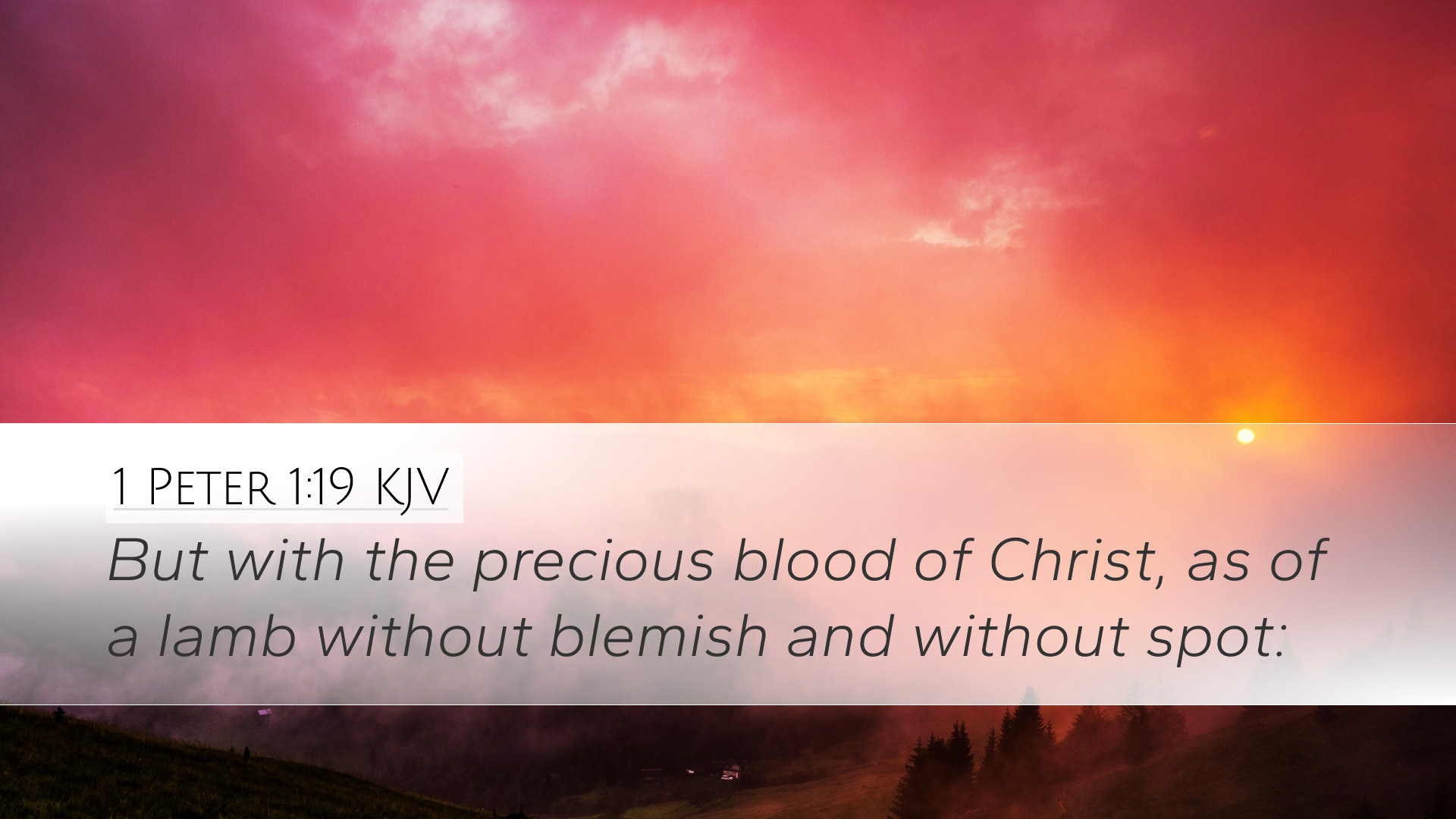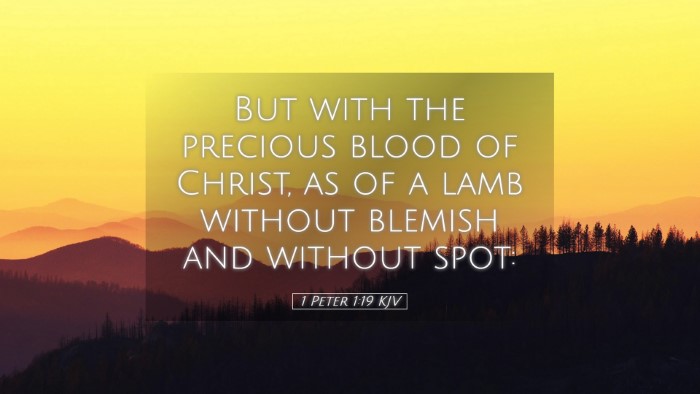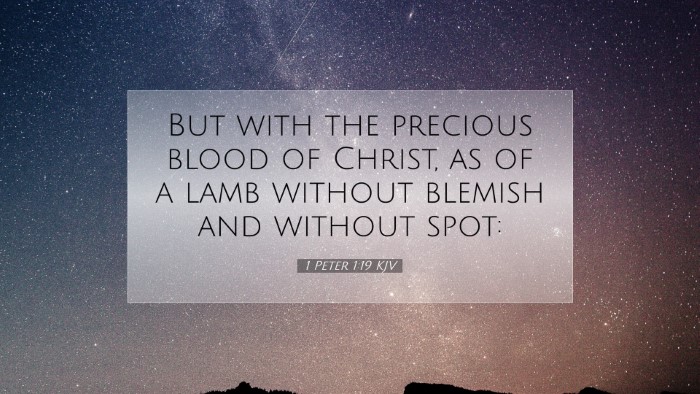Commentary on 1 Peter 1:19
Verse Analysis: "But with the precious blood of Christ, as of a lamb without blemish and without spot:" This verse encapsulates the essence of the redemptive work of Christ and serves as a pivotal point in Peter's exhortation to holiness and perseverance in faith.
The Importance of the Blood of Christ
Matthew Henry's Commentary: Henry emphasizes the value of Christ's blood, calling it "precious." Acknowledging its price, he notes that it was shed not for a mere earthly benefit but for an eternal redemption—advocating that believers should live according to the high calling they have received through this sacrifice.
Albert Barnes' Commentary: Barnes highlights the term "precious" as denoting the inestimable worth of Christ's sacrifice. He reflects on the idea that the blood of Christ is the singular source of atonement, indicating that no other means could satisfy the divine justice required for humanity's redemption.
Adam Clarke's Commentary: Clarke unveils the nuances of the term "lamb without blemish," connecting the imagery to the Old Testament practice of sacrificial lambs, which foreshadowed Christ. He asserts that Jesus, as the unblemished Lamb, was an acceptable offering to God, thus fulfilling the prophetic symbols of the past.
The Significance of Sacrifice
Viewing Sacrifice Through the Lens of Grace: All three commentators collectively relay the profound implications of Christ's sacrificial death. It is not merely a transaction but an act of divine love and grace. They underscore the importance of understanding the true weight of what it means to be redeemed by such a sacrifice.
- Hebrews 9:22: "Without the shedding of blood there is no remission." This principle, reiterated throughout Scripture, reflects the necessity of a blood sacrifice, which, in Christ, is finally fulfilled.
- The Lamb of God: As John 1:29 states, Jesus is referred to as the Lamb of God who takes away the sin of the world. This profound title links back to the Passover lamb in Exodus, illustrating the continuity of God's redemptive plan.
The Call to Holiness
Exhortation to a Holy Life: Following this profound declaration about Christ's atoning blood, Peter's epistle consistently emphasizes living a life of holiness in response to such grace. The recognition of being bought at a price (1 Corinthians 6:20) compels believers to embody the righteousness that was imputed to them.
Matthew Henry highlights: That the realization of this price paid should foster gratitude and motivate believers toward moral purity and sacred living in a world often tinged with sin.
Theological Implications
Understanding Atonement: In their comments, both Barnes and Clarke dive deeper into the theological ramifications of the sacrificial framework. They address various aspects of atonement—from substitution to expiation and propitiation—illustrating how Christ's blood was essential for restoring the relationship between divine holiness and human sinfulness.
Clarke elaborates: on the concept of Christ as our mediator who effectively brings reconciliation, stressing that the sacrificial nature of Christ’s death was predetermined in the divine plan, highlighting its importance in Christian faith and doctrine.
Practical Applications for Believers
Living in Light of Redemption: Pastors and theologians are urged to guide their congregations in understanding not only the historical context of Christ's sacrifice but also its implications for daily living. The reflection on the "precious blood" should instill a sense of identity and belonging in the believers' consciousness.
- Repentance: Encouraging an attitude of continual repentance and appreciation for grace received through Christ’s blood can lead to transformative living.
- Witnessing: Understanding the depth of sacrifice inspires believers to share the gospel compellingly and authentically, representing the love and mercy of God to others.
- Community: Building a community grounded in the acknowledgment of Christ's sacrifice can foster deeper connections among believers, encouraging accountability and mutual growth in faith.
Conclusion
This verse serves as a powerful reminder of the sacrificial love of Christ, embodying redemption, grace, and the call to a holy life. By understanding the implications carried within 1 Peter 1:19, pastors, students, theologians, and scholars can deeply appreciate the richness of their faith and communicate it effectively to others.


